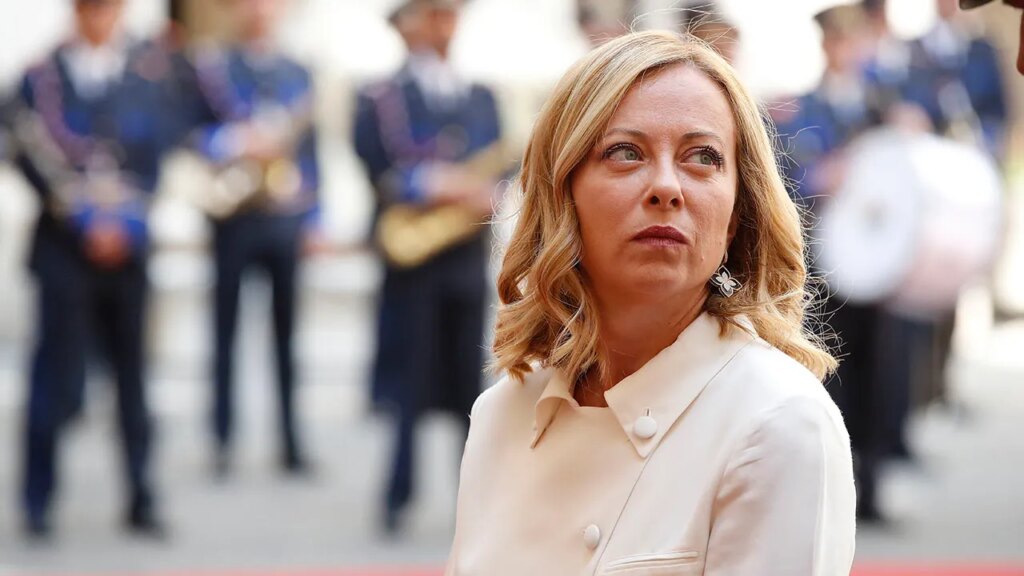Italian Prime Minister Giorgia Meloni has sharply criticized an upcoming Gaza-bound flotilla involving anti-Israel activists and celebrities, including noted environmentalist Greta Thunberg. The flotilla poses potential risks to diplomatic efforts aimed at securing peace in the region, particularly concerning former President Donald Trump‘s ongoing peace negotiations. Meloni warned that such actions could undermine peaceful initiatives and provoke further tensions in an already volatile situation.
| Article Subheadings |
|---|
| 1) Opposition to the Flotilla and Its Implications |
| 2) The Role of International Figures |
| 3) Preparations by Israeli Authorities |
| 4) Backing and Support for the Flotilla |
| 5) The Broader Political Context |
Opposition to the Flotilla and Its Implications
The flotilla, which has garnered international attention, is positioned as an act of defiance against what activists claim is an illegal blockade imposed by Israel on Gaza. Prime Minister Giorgia Meloni highlighted her concerns on social media, asserting that the flotilla’s intention is more about escalating tensions rather than providing humanitarian aid. She stated,
“The truth is simple: those aids can be delivered without risks … Insisting on wanting to force a naval blockade means making oneself – Knowingly or not – instruments of those who want to blow up every possibility of [a] ceasefire.”
Meloni’s remarks indicate her alarm about the risks the flotilla poses in light of existing diplomatic frameworks designed to achieve peace in the conflict-ridden area.
The Role of International Figures
The involvement of prominent figures like Greta Thunberg adds a layer of complexity to the situation. Thunberg is widely recognized for her activism related to climate change. However, her participation in the flotilla has drawn criticism from officials like Israeli Foreign Minister Gideon Saar, who characterized the mission as
“a dangerous provocation intended to inflame tensions and undermine ongoing diplomatic efforts.”
The inclusion of celebrities often raises public awareness but also raises suspicions about ulterior motives behind such humanitarian efforts. Critics argue that while humanitarian discourse is essential, the timing and method of delivery could serve to exacerbate rather than alleviate conflict.
Preparations by Israeli Authorities
As the flotilla approaches Israeli waters, preparations by Israeli authorities reflect the seriousness of the situation. Reports indicate that around 600 police officers have been deployed along with naval units to monitor the flotilla’s journey, which is expected to reach Israeli waters around the time of Yom Kippur, a significant Jewish holiday. Authorities have also established a special court to expedite the processing of any detainees, showcasing the measures in place to mitigate potential provocations at sea. A senior Israeli police officer commented on the complexity of handling such an operation, stating, “This is a sensitive and complex operation, and we are preparing for provocations.”
Backing and Support for the Flotilla
The flotilla’s underlying motivations are further diminished by the allegations surrounding its organizational structure. The Global Sumud Flotilla claims to be a multicultural civil initiative to challenge Israel’s maritime blockade. However, Israeli authorities allege substantial ties between flotilla organizers and Hamas, including links to the Palestinian Conference for Palestinians Abroad (PCPA), designated as a terrorist organization by Israel. The group claims to advocate for Palestinian rights but is shadowed by accusations of being an operative wing for Hamas. Activists involved have rallied support from various international groups, yet concerns persist regarding who truly benefits from the flotilla; the Gazan population or the political ambitions of the involved organizations.
The Broader Political Context
The flotilla arrives amidst a delicate period for Israeli-Palestinian relations, particularly as Donald Trump strives for a breakthrough in peace negotiations. Trump’s 20-point plan aims to address critical issues, including the release of hostages held by Hamas, and seeks to stabilize the region through diplomatic engagements. Reports suggest that the flotilla could realign the narrative away from negotiations and toward confrontation. For Israel, the imperative lies in preventing the flotilla from accomplishing its mission while avoiding conflicts that escalate into international crises. This has created a precarious balance that adds pressure on diplomatic efforts, making it more challenging to secure a lasting resolution in the ongoing conflict.
| No. | Key Points |
|---|---|
| 1 | The Gaza-bound flotilla is viewed by Meloni as a potential threat to peace negotiations led by Trump. |
| 2 | Thunberg’s involvement highlights the intersection of environmental and political activism, complicating the discourse surrounding the flotilla. |
| 3 | Israeli authorities are preparing extensive security measures to prevent conflicts as the flotilla approaches its destination. |
| 4 | Accusations related to Hamas ties raise concerns about the true objectives of the flotilla and its organizers. |
| 5 | The geopolitical context underscores the precarious balance between activism and diplomacy, influencing the Gaza situation’s future. |
Summary
The situation surrounding the Gaza flotilla underscores the complex dynamics at play in Middle Eastern diplomacy. As activists attempt to challenge the Israeli blockade through a high-profile maritime operation, leaders like Giorgia Meloni express concerns about potential destabilization of delicate peace efforts. The involvement of international figures and extensive preparations by Israeli authorities indicate the high stakes involved, highlighting the need for a measured approach to activism in the context of ongoing conflict. Ultimately, the approaching confrontation at sea could have significant repercussions for the future of Israeli-Palestinian relations.
Frequently Asked Questions
Question: What is the primary goal of the flotilla?
The flotilla aims to challenge what activists call Israel’s illegal maritime blockade of Gaza, advocating for the rights of Palestinian citizens and delivering humanitarian aid.
Question: Why is there controversy surrounding the participation of Greta Thunberg?
Thunberg’s involvement has drawn criticism as it raises questions about the intersection of activism and political agendas, with concerns that it may further escalate tensions.
Question: What measures are being taken by Israeli authorities in response to the flotilla?
Israeli authorities are deploying around 600 police officers and naval units to monitor the flotilla, alongside establishing a special court to expedite the processing of any detainees.


